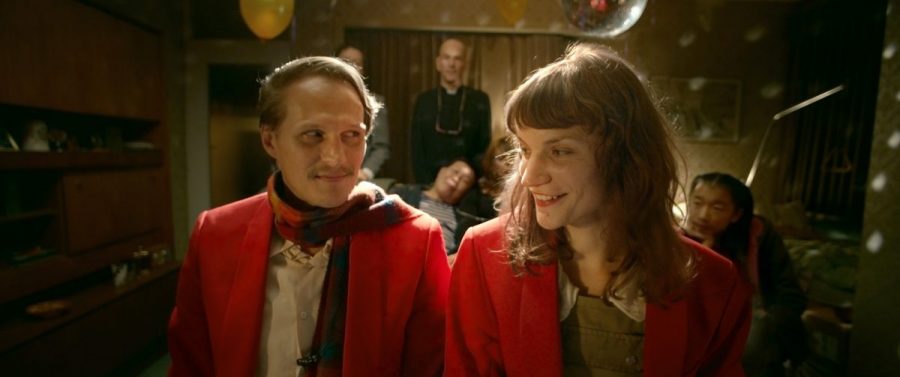Available on dual-format Blu-Ray/ DVD now
The debut film of Swiss writer/ director Tobias Nölle is a film of two halves. It begins as a chilly, austere thriller with psycho-sexual overtones, and turns into a surreal love story. One’s appreciation for the story hinges mainly on the ability to reconcile this abrupt switch.
Aloys Adorn (Georg Friedrich) is an introverted private investigator, the junior partner in an agency ran by his father. When Adorn senior dies, Aloys is left bereft and adrift in a world with which he interacts solely by telephone and through the viewfinder of his camera. In echoes of Gene Hackman’s paranoiac PI in The Conversation he’s a deliberate loner, although more studiedly eccentric. His sole hobby consists of watching his video tapes, meticulously labelled and filed, while morosely sipping from sachets of Capri-Sun.
One evening, he falls asleep on a bus after a grief-fuelled bender, awaking to find his rucksack with all his equipment stolen. His phone rings. The caller is a sultry-voiced woman who threatens to send the tapes to their subjects. With Aloys onside she tries to initiate him into the practice of ‘phone-walking’, allegedly a Japanese therapy for crippling shyness, in which a person mentally connects with another by imagining themselves in the location and situation the other describes.
By this point it seemed that Nölle was establishing a creepy, voyeuristic thriller along the lines of Shinya Tsukamoto’s A Snake of June, or an arthouse take on some of Brian De Palma’s more trashy Hitchcock-worship. However, this set-up is instantly abandoned in favour of a curious romantic fantasy that retains the muted, formal approach to its direction and cinematography, while injecting bizarre, whimsical interludes into the blossoming telephonic courtship of Aloys and the caller, Vera (Tilde von Overbeck).
On a base level it plays like a more restrained, Teutonic version of Michel Gondry’s Eternal Sunshine of the Spotless Mind, though concerned with the beginning of a relationship, rather than its deconstruction. There are also echoes of Amelie in the curious coming-together of two lonely souls. This is the film’s strength and its main weakness. Nölle’s ambition is laudable, and there is more than enough good things about Aloys to bring to mind such brilliant and singular pieces of cinema. However, it doesn’t get to those heights and occasionally feels like less than the sum of its parts.
That said, this is an arresting debut and promises greater things. Nölle undoubtedly has the potential to produce something startling and original in the future. For now Aloys is well worth investing ninety minutes in. The tonal shift is undoubtedly bracing, but the the meshing of a sweet, strange love story, with formal, rigid style is never less than interesting.
